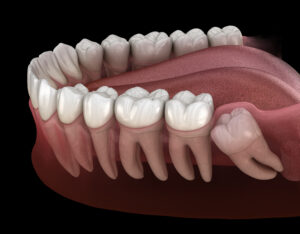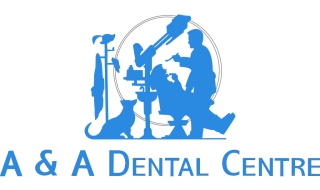Your dentist advises wisdom teeth removal, which may require a visit to an oral surgeon. The procedure will be conducted in the surgeon’s office and the recovery period is expected to be a few days until you feel normal again.
Reasons for removing wisdom teeth
 Impaction: Wisdom teeth often do not emerge properly and can become trapped in the jawbone or gums, causing pain.
Impaction: Wisdom teeth often do not emerge properly and can become trapped in the jawbone or gums, causing pain.
Improper angle: They may grow in at an angle that puts pressure on adjacent teeth.
Lack of space: Many people’s jaws are too small to accommodate an extra set of molars.
Dental issues: Difficulties in cleaning and reaching the wisdom teeth can lead to cavities or gum disease.
Consultation and Important Considerations
Before the surgery, you will have a consultation with the oral surgeon to discuss the procedure. It is important to inform them about any health conditions and medications you are taking. You should also ask any questions you have and clarify the type of anesthesia you will receive—either local anesthesia, IV sedation, or general anesthesia. Planning for time off from work or school and arranging for transportation, childcare, or pet care, if necessary, should be done in advance.
Anesthesia Options and Wisdom Teeth Extraction
During the surgery, which typically lasts less than 45 minutes, anesthesia will be administered to ensure you don’t experience pain. The options include local anesthesia with or without nitrous oxide, IV sedation, or general anesthesia. The surgeon may need to make incisions in the gums or bone to extract the wisdom teeth, after which the wounds will be sutured. Gauze pads may be set in your mouth to absorb any bleeding.
Anesthesia Effects and Healing Expectations
After the surgery, recovery times may vary based on individual responses to anesthesia. If you received a local anesthetic and are alert, you may be able to drive home and resume regular activities. However, if you had general anesthesia or still feel drowsy, you will require someone to drive you home. Post-surgery, you can expect some swelling and mild discomfort for approximately three days, with complete healing of the mouth taking a few weeks.
Tips for Speedy Recovery
 To ensure a faster recovery, it is important to follow your doctor’s instructions. For the initial three days after the surgery, you can use ice packs to lessen swelling, apply moist heat to ease jaw soreness, gently use your jaw by opening and closing your mouth, consume soft foods and ample fluids, brush your teeth starting from the second day while avoiding blood clots, take prescribed pain and swelling medications, and contact your doctor if you experience fever, or if the pain and swelling do not improve.
To ensure a faster recovery, it is important to follow your doctor’s instructions. For the initial three days after the surgery, you can use ice packs to lessen swelling, apply moist heat to ease jaw soreness, gently use your jaw by opening and closing your mouth, consume soft foods and ample fluids, brush your teeth starting from the second day while avoiding blood clots, take prescribed pain and swelling medications, and contact your doctor if you experience fever, or if the pain and swelling do not improve.
Avoiding Pitfalls for Optimal Healing
There are also certain things you should avoid during the recovery period, such as drinking through a straw, rinsing your mouth forcefully (gentle saltwater rinses may be suggested), consuming hard or sticky foods that may damage the wounds, and smoking, as it can impede the healing process.
For more information about our dental treatments and to book an appointment, please visit our Treatment page. Discover how we can help you achieve a healthy and beautiful smile.
Contact AA Dental Clinic Vancouver today:
- Phone:604-255-4001
Don’t miss out on the chance to experience exceptional dental care on Commercial Drive. Visit AA Dental Clinic Vancouver, your trusted dental partner.






